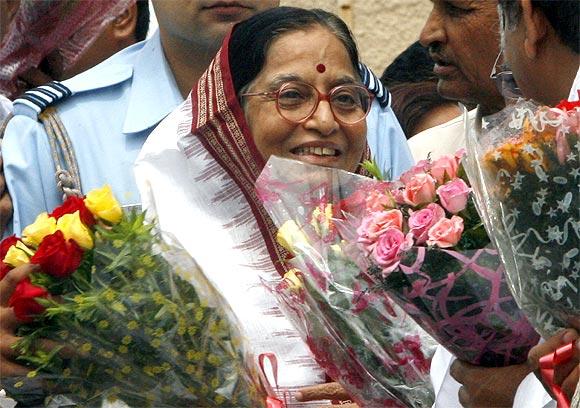
Weeks before stepping down as President of India, Pratibha Patil, the first woman to become Head of State, tells Kalyani Shankar that she would like to be remembered as the President who worked for the welfare of the people
Madam President, your term is coming to an end now. How would you sum up your tenure in the Rashtrapati Bhavan? How would you like to be remembered?
It was a very exciting experience. It involved a lot of responsibility and challenge. There was curiosity among the people as to how the first woman President would discharge her responsibilities. I took it in right earnest and decided to act according to the Constitution. I also tried to preserve and protect the interests and welfare of the people of India. Whenever any constitutional matter came up before me, I carefully examined it and took decisions.
As far as the welfare and wellbeing of the people are concerned, I started thinking about the measures that I should take for the women of India who constitute 50 per cent of the population. I was constantly thinking of what I could do for the empowerment of women.
So, in 2008, as it was a practice to call a conference of the governors, I convened one and at the end of it, I constituted a committee of governors to study the different situations in which women were living and give me a report, along with recommendations, as to how to improve their lot.
This committee conducted very wide consultations and held discussions with different state governments, experts, NGOs, women's organisations and women legislatures and gave me a report. I discussed with the prime minister the necessity of taking a policy decision, of giving direction to the steps taken by different ministries, converging the schemes meant for women and taking forward the policy of women empowerment with a definite direction.
The government decided to establish the National Mission for the Empowerment of Women with the ministry of women and child development as the nodal ministry. The mission was launched by me on March 8, 2010. Nation-wide action (on the mission) has already been started by state governments and the Centre. It is gaining momentum now. In the next few years, there will be a lot of work in the field of socio-economic welfare of women.
Another major step is the setting up a committee for a survey of gender equality and status of women. This was set up in February this year under the chairmanship of Justice Ruma Pal. Once this report comes out, it will do justice for women's equality.
The third is the reconstruction of the Rashtriya Mahila Kosh into a development bank and increasing its corpus. These issues are being addressed. RMK makes funds available to self-help groups through NGOs which act as intermediaries.
As far as how I would like to be remembered, it is for the people to say. I would like to be remembered as a president who has taken interest in the welfare of the people. I have met a large number of visitors, almost 1.5 lakh people, at the Rashtrapati Bhavan and may be more than that during my tours of the states and union territories.
Click on NEXT for more...
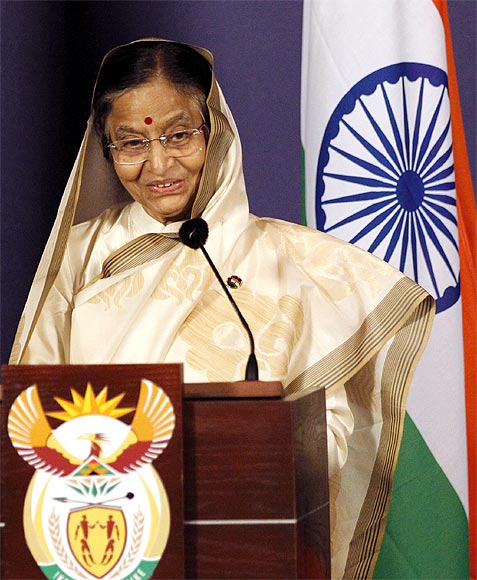
Are you laying down your office with satisfaction or do you think more could have been done?
More could have always been done in a country like India. However, I have the satisfaction that I could do something for 50 per cent of the population (women) and for the majority of the farmer's community in focusing attention on the difficulties of rain- fed areas and also giving suggestions (for improvement).
I have also stressed on the elimination of social evils like female foeticide, ragging, and child marriage to make society more sociable.
It has been a difficult journey for you. You started as a young legislator and went on to become the President of India. When you look back at your long career, how do you feel? How has the world changed in the meantime?
The world has changed a lot. It has been a journey of 50 years in the field of politics for me. There are different things happening in economic, social, political and cultural fields. A lot of change has come even in the family system, which is becoming an unitary system for different reasons. Many women have started joining politics.
A lot of malpractices have started, like corruption, money and muscle power, which are dangerous for a healthy democracy. When I first contested in 1962, I spent just a few thousand rupees for my elections, which was for hiring jeeps and vehicles. In my second election also I spent just a few thousand rupees. During my third election, I had almost no expenditure because there was no opposition. We used the jeeps only to go to rural constituencies; otherwise, it was only a door-to-door campaign.
One of your predecessors, KR Narayanan, called this office as that of a working President and not a rubber stamp President. At the end of your five-year tenure, how do you view that statement?
I agree with my distinguished predecessor. I don't know why people call it a rubber stamp President. According to the Constitution, you have to act on the aid and advice of the Cabinet. There is enough leeway for a President to work on social aspects, which is what I do.
Click on NEXT for more...
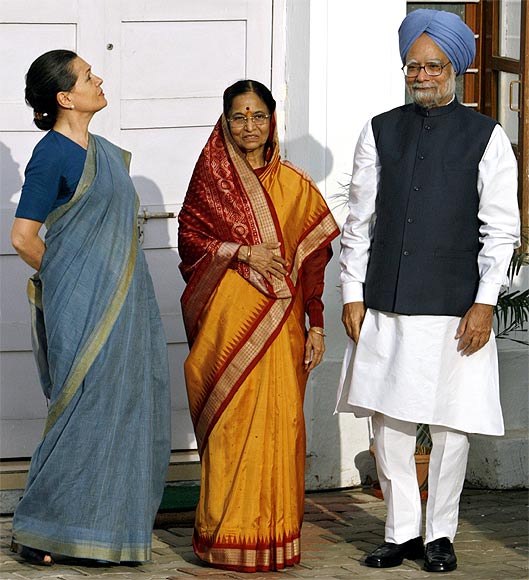
Fortunately, your tenure has been free of friction and there had been no collision with the Executive. Was there any kind of tension that was not visible?
How do you expect me to talk of what happened behind-the-scenes? There were some situations which were discussed, views were expressed and interactions took place wherein I gave my opinion.
Are you a political President?
I was a political person. Once I became the President, I became apolitical. My way of looking at things was completely apolitical. I used to hold consultations, discussions and through these processes, most issues were resolved. If I wanted a particular thing to be mentioned, it was accepted. All my Independence Day and Republic Day speeches were completely mine. There never was any interference.
You are a bridge between the Centre and the states and political parties come to you with their grievances. Do you think that the present system needs a re-look?
I won't say it needs a re-look but more dialogue between the Centre and states is needed. There is enough scope under the Constitution to sort out these matters. Our Constitution is both unitary and federal; if the Centre and the states function within the constitutional limits, there shall not be any problems. More understanding and more interactions are needed.
You have interacted with several foreign dignitaries and hosted banquets for them in Rashtrapati Bhavan. Who has left an imprint in your mind? You have also travelled abroad many times and have been hosted by several heads of state. Which visit was most memorable?
Each of my visits was memorable. I was received with utmost warmth and I had very serious discussions with these heads of states. Some of the visits -- Austria, Switzerland, Mauritius, South Korea, South Africa, Tajikistan, to name a few -- were interesting. I was the first President to visit Laos and Cambodia after nearly 50 years. These visits are not just ceremonial. The P- 5 heads of state came to India.
(Former) Russian President Dmitry Medvedev called me and congratulated me after I flew the Sukhoi. United States President Barack Obama was very open and he discussed issues with me very freely. US First Lady Michelle Obama was also very articulate. We had excellent meetings with (Russian President) Vladimir Putin, (former French President) Nicholas Sarkozy and many other heads of state.
Click on NEXT for more...
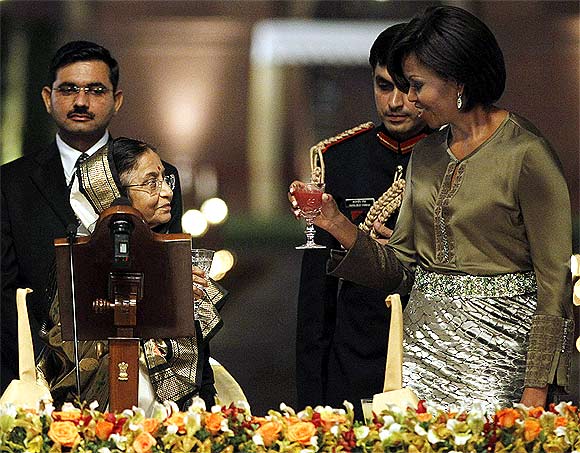
I wanted to go back to your childhood. You were a very sheltered girl and came from a very orthodox family. But your thinking has always been modern. How did you negotiate these contradictions and become successful? Did you have to make any difficult decisions?
My father wanted to protect me because he was concerned that I was a girl child, at the same time he wanted to educate me and put me in public life. He was careful. Sometimes I did not like it but I could understand his thinking. I was grateful that he had given me the opportunity to study. But my thinking was my own.
I used to be concerned about women, particularly rural women. My views got expanded and I used to read a lot. I used to live in Mumbai and I studied law there. I used to visit farthest villages and was moved by the plight of women there.
You got married after you became an MLA. Was it difficult to adjust in your new home? After you had children, how did you adjust your home life and your political career? Did you ever think about giving up politics?
I thought of giving up politics several times. It was difficult. Public life is a full-time job. I found some time for my family, but it is much more difficult for a woman to carry on with both. But the party workers had faith in me and they wanted me to keep going.
Did you find it easy to perform in your initial days? I am asking this because in those days politics was a man's world.
Being a woman never came in my way because I worked like a man but behaved like a woman. I knew in my mind that I have my limitations. My father had taught me a simple and traditional way of life. I could see dignified behaviour commands respect and it does not come in your way. If you are a woman, you get more respect. This is the Indian way.
Click on NEXT for more...
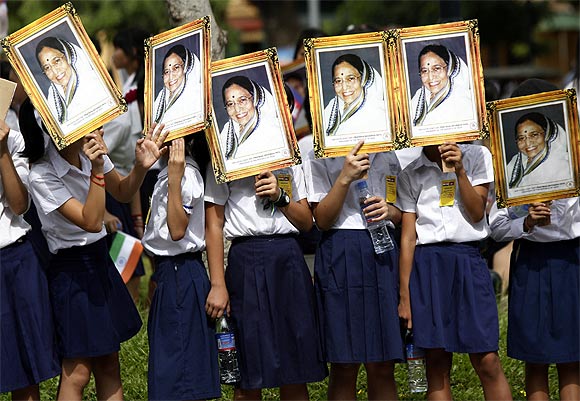
Is that why you cover your head?
Women in rural India think that covering your head is good. It gives you grace. When you are in public life, it is necessary to look dignified and respectful.
You have held various positions like that of a junior minister, cabinet minister, Leader of the Opposition, and Pradesh Congress Committee president. Which of them was the most challenging?
Every post is challenging. As deputy chairman of the Rajya Sabha, I had a very trying time. There were many issues like Bofors and Sumitomo. At that time, Vice President R Venkataraman had been elevated to the post of President. I had to hold both posts of the Rajya Sabha chairman and deputy chairman until a new vice president was elected. I had a difficult time controlling the House. There were stalwarts like (Bharatiya Janata Party leader LK) Advaniji, (BJP leader Atal Bihari) Vajpayeeji, (Communist Party of India leader) Gurudas Dasguptaji, and (Communist Party of India-Marxist leader) Basudev Acharyaji in the House.
After having an active political career, did you enjoy the constitutional posts of the governor and the President?
I had no problems. Maybe it is because of my law background. I had a good idea of my constitutional responsibility. It was an apolitical role.
Are you a symbolic woman President?
Why is it said like that? It does not mean other women cannot become the President of India. It is about giving representation to women. Many women may succeed me in days to come.
Click on NEXT for more...
...